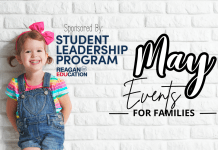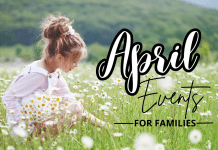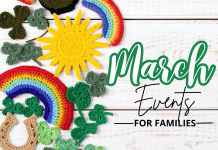I Reminisce and Hope
I sit with a friend and grieve with her at the loss of a relationship she has shared with someone for many years. I don’t have words of wisdom, only the presence of my physical body and silence that solidifies a tender message between us. We now understand one another on a deeper level and have unwillingly become members of the same club.
This isn’t the end of a romantic relationship. Nor is it a loss due to illness or death, although those are devastating to be sure.
It’s the end of a friendship that has changed, evolved, labored, and separated.
Losing a friend is difficult. Losing a friend as an adult is a strange heartache no one prepares us for. It’s a jarring reminder that things are not always as they should be and no matter how old we get, relationships are still hard—they flex and morph and some stand the test of time while others do not.
I think about my own experiences with friends—names and faces that through some seasons were such an intricate part of my daily life. Reminiscing fills me with gratitude, but sadness too. Not all friendships that have ended, have ended well and that feels complicated.
I leave my friend’s house and begin the drive home. It’s not far and the beach to my left makes sitting in traffic bearable. I catch a glimpse of children jumping in the waves together and my mind drifts back to a time when my daughter was five or six. Like so many kids, she wasn’t tethered by social norms or expectations. Those she came in contact with were simply known as “friend.” And even though she didn’t always bother learning their names, what mattered most was the freedom to be oneself and the joy of having a playmate.
She shrugs off an unkind word from a fellow classmate and chooses instead to find someone else to play with that day. She meets a new bestie at the playground and another one the day after that and another still the following week. She is not concerned with the details of how to make and maintain friends.
Friendships seem simpler for kids. And then we age a little and the drama of our teenage years loom over us. Middle school, high school and even young adulthood are often marked by relational tension.
But as trying as those years are, we don’t often talk about the complexity of making and maintaining friends as mothers with expanding families and expanding life experiences. We expect once we reach our thirties we’ll intuitively know how to compromise, work through healthy conflict, and welcome more people to our dining room tables.
Maybe we’ve tried and it hasn’t been reciprocated. Maybe we’ve learned that some relationships are healthier from afar. Maybe we’ve grown up and matured in a lot of ways, but at this point in our lives we hoped our friendships would look more like a thriving community and less like a wilderness.
Choose Vulnerability
I stand just outside my son’s school, waiting for a teacher to unlock the gate so the hoard of students can be released to their parents. We’re all standing there together, awkwardly, silently. I muster up the courage to start a conversation with another mom standing nearby. She has a son in the same grade as my own and I am determined to get over myself and attempt to make a new friend. The conversation, however, does not go as planned and before I know it, I have most definitely shared too much information. In five short minutes I have told her my whole life story including, but not limited to the fact that I’ve had my tubes tied, a concern that I suppress my emotions because of unnamed trauma from my adoption, and that gluten may be the culprit to my indigestion. She is incredibly gracious and kind. Silently I think to myself, “She will never talk to me again.”
I’m surprised, however. As I share my own experiences and vulnerabilities I’m met with understanding. I verbalize pain and surprise that friendships over the years have taken some unexpected twists and turns. There have been some high highs and low lows as I’ve worked to reconcile my relational expectations with the reality that life often doesn’t look the way I want. “You too?” She responds. Even if it’s the only conversation we ever have, I know in this particular moment I’m not alone.
RELATED TOPIC: Creating Community Through Vulnerability
Remember This is Hard
We desire beautiful table settings, well-behaved children, and Instagram worthy snapshots of life. We long for annual vacations with our besties and the comfort of knowing wherever we go, we have a group of people who have our backs. Yet, mantras like, “it takes a tribe”, only truly make sense under the lived reality that we have an actual tribe of people to do life with, doesn’t it? We yearn to be known and understood.
There could be a myriad of reasons why some friendships are hard as an adult—why some last and others do not, but the reality is that life and relationships are messy. And while there’s a lot to be grateful for, there are oftentimes hard and painful parts of our stories we may never have answers to.
Keep Moving Forward
There was a time I believed I carried the full weight and burden of my inter-relational experiences. But with age and the complexity of life experience I’m learning and accepting some friendships will be difficult no matter what. Try as we might for a different outcome, some will be for a season and some we might need to lovingly let go of. But still, some will help us feel known and loved. We’ll carry those with us for a lifetime.
Thus, we keep hoping. We keep trying. We keep showing up. And we keep opening our circles to those who might not already have a seat at a table.
Friend, if your friendships are flourishing, I’m celebrating with you, giving thanks for such good gifts. I’m reminded that even as adults, opening our homes, hearts and social circles is still necessary and worthy work.
And if the friendships in your life feel messy and complicated, leaving you wanting more—if today or tomorrow doesn’t bring the friend you need, want or hoped for and you’re still wondering when you’ll find your people, I hope you’re reminded there’s purpose even in the waiting. And not the kind of purpose that dismisses pain or desire or refuses to admit how awfully lonely it can feel—but the kind of purpose that is hopeful and curious of what could be. Even though we have endured disappointment in our friendships, this story isn’t over.
Pull up a chair, friend. You’re welcome here.


















